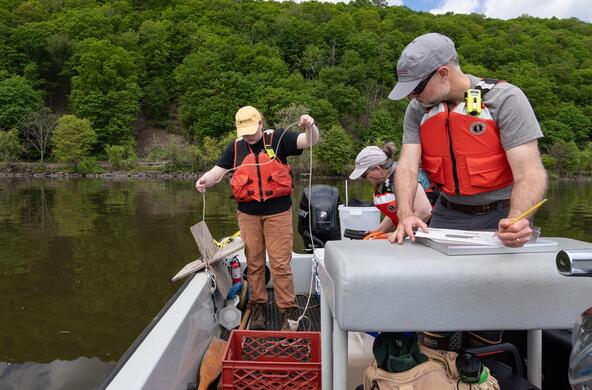
- Profile
- Publications
The unifying theme of Tara Stewart Merrill’s research is understanding the causes and consequences of disease in ecosystems. Considerable gaps exist in our understanding of the environmental conditions under which pathogens spread, as well as how parasites—as naturally occurring enemies—structure species interactions and ecosystem-level processes. Tara’s research confronts these gaps with interdisciplinary approaches, connecting theoretical models to laboratory experiments and observational field studies.
Tara’s research is motivated by the growing threat that infectious disease poses for human and wildlife health. Her objectives include understanding the triggers and constraints of the infection process, how they scale up to produce disease outbreaks, and how the controls of transmission are modified by environmental change. For this work, Tara takes a multi-scale approach, integrating information from individual hosts, ecological communities, and ecosystem characteristics.

Importantly, the threats of infection are balanced against the critical roles that parasites and pathogens can play in ecological communities and food webs. As consumers, parasites can change host behaviors, suppress host reproduction, and shorten host lifespans, with powerful potential to restrict the size and growth of host populations. In ecological communities, these top-down effects can have strong impacts on competitive and trophic interactions. Working in aquatic ecosystems—from keystone zooplankton in lakes, to amphibian communities in ponds, to broader food webs in freshwater and marine systems—Tara is exploring how parasitism adds to, or even transforms, our understanding of ecological processes.


